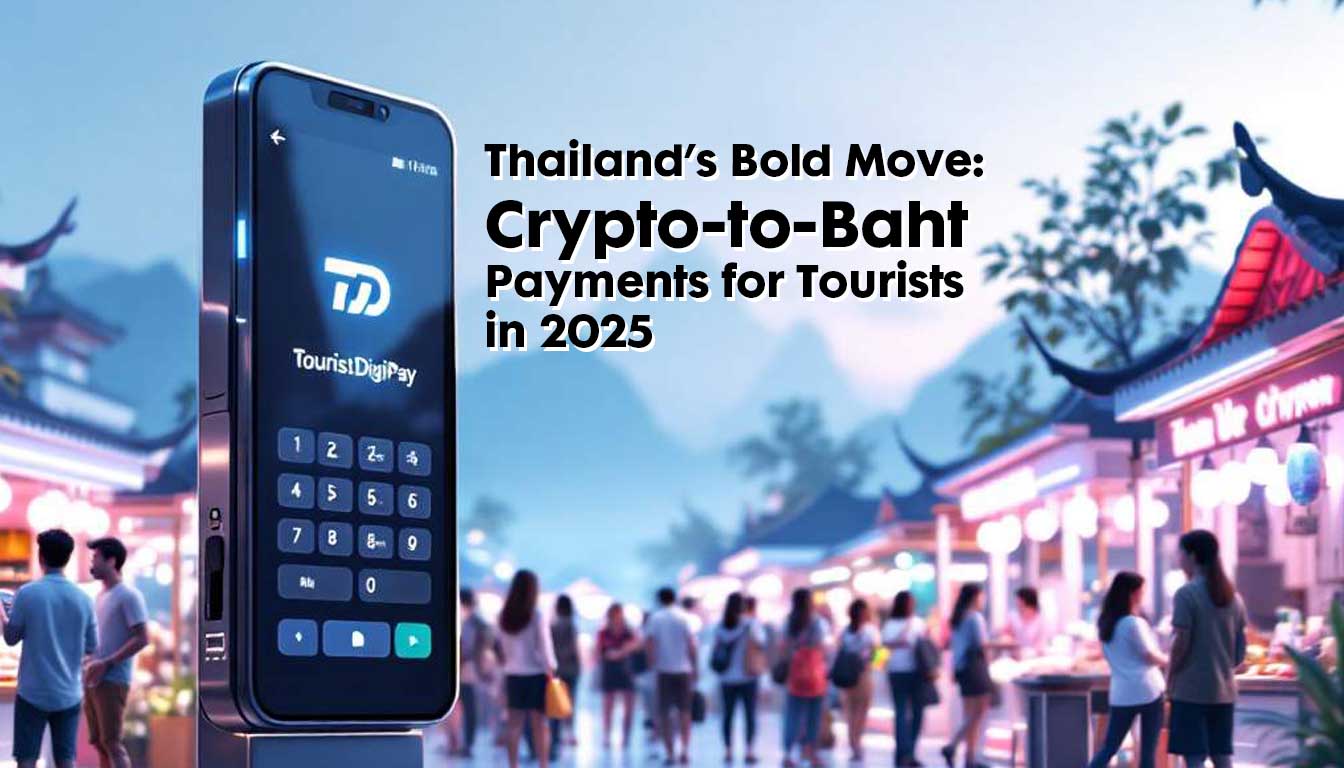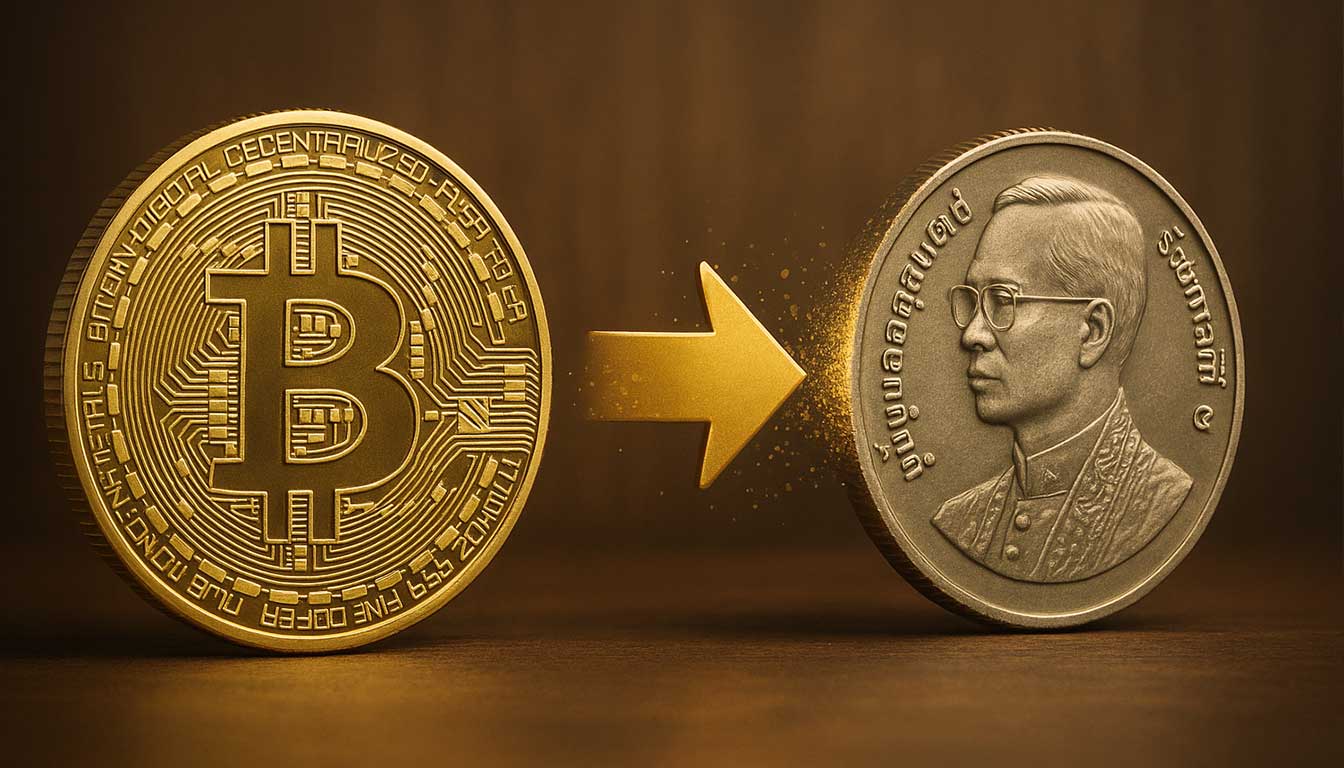Crypto
Thailand’s Bold Move: Crypto-to-Baht Payments for Tourists
Published
3 months agoon
By
Samuel Ting If you’ve ever travelled to Thailand and wished you could spend your Bitcoin or Ethereum without fussing over exchange rates, you’re in luck. Thailand is about to roll out a new program that lets foreign tourists convert crypto directly into Thai baht through a special Tourist Wallet.
If you’ve ever travelled to Thailand and wished you could spend your Bitcoin or Ethereum without fussing over exchange rates, you’re in luck. Thailand is about to roll out a new program that lets foreign tourists convert crypto directly into Thai baht through a special Tourist Wallet.
It’s not just another gimmick — this 18-month pilot could completely change how crypto-to-baht is used in real-world tourism. And as Malaysians who often head to Bangkok, Phuket, or Chiang Mai for a holiday, this is news worth paying attention to.
What Exactly Did Thailand Launch?
The initiative is called TouristDigiPay, and it kicks off in Q4 2025 as a sandbox trial. Here’s how it works:
- Tourists sign up with a Thai-licensed crypto exchange (like Bitkub).
- They go through KYC/AML checks to stay compliant.
- Their crypto is converted into Thai baht.
- The baht is loaded into a Tourist Wallet (provided by e-money operators regulated by the Bank of Thailand).
- Tourists can then pay at local shops via QR PromptPay, which is already everywhere in Thailand — from 7-Eleven to street markets.

The genius part? Merchants never touch crypto. They just receive baht like any other payment. This is how the crypto-to-baht system works.
Key Features of the Program

Thailand isn’t going all-in blindly. The system comes with rules and limits to keep things safe and controlled:
- Transaction cap: ~฿100,000 (around RM13,000) per purchase.
- Monthly cap: ฿500,000 (about RM67,000) per tourist.
- Small merchants: limited to ฿50,000 per month.
- Verified merchants: can accept up to ฿500,000 monthly.
- Security: Strict KYC/AML checks on both tourists and participating businesses.
In short, tourists get convenience, merchants get baht, and the government gets oversight.
Why Is Thailand Doing This?
A few reasons stand out:
- Tourism is huge for Thailand. Pre-pandemic, it made up almost 20% of their GDP. Making spending easier means more cash flowing into the economy.
- Attracting “crypto whales.” Some travellers keep most of their wealth in crypto. Thailand is saying, “Hey, don’t cash out back home. Just spend it here.”
- No FX headaches. Merchants don’t need to worry about volatility or holding crypto. Everything settles in baht.
- Crypto branding. Thailand is positioning itself as a forward-thinking, crypto-friendly hub in Asia.
As Malaysians, we can’t help but compare: imagine if Genting Highlands or Langkawi had a similar system. Thailand is clearly testing the waters first.
Is Thailand Ready for This?
That’s the million-baht question. Let’s look at both sides.
Strengths:
- Big local exchanges like Bitkub already have solid adoption.
- PromptPay is everywhere, making integration smooth.
- Clear regulation from both the Bank of Thailand and SEC.
Weaknesses:
- Crypto volatility still affects tourists during conversion.
- Onboarding might feel like a hassle (passport scans, KYC delays).
- Past issues — some exchanges faced probes or shutdowns.
- Liquidity bottlenecks possible if millions join in.
That’s why the government is calling it a sandbox trial. If it works, they’ll scale up. If not, they’ll quietly pull back.
Why This Matters for Malaysians
For us, Thailand is one of the top holiday spots. If you’re already holding BTC, ETH, or USDT, this system could:
- Save you the hassle of converting to USD first.
- Let you pay directly for hotels, food, and shopping using crypto → baht.
- Possibly inspire Malaysia or Singapore to explore similar systems if it succeeds.
It also raises a big question: Would Malaysians actually prefer paying in crypto while travelling, or just stick to Visa/Mastercard?
Risks and Criticisms
Not everything is rosy. Critics have pointed out:
- Regulatory risks: Global watchdogs like FATF might pressure Thailand if loopholes are exploited.
- Tourist onboarding friction: If the KYC takes too long, people won’t bother.
- Volatility: Merchants are shielded, but tourists might still lose if prices swing before conversion.
- Security concerns: Any hiccup in wallet systems could harm trust.
Basically, it’s a bold experiment, but one that comes with plenty of “wait and see.”
Final Thoughts
Thailand is turning its tourism sector into a crypto test lab. For now, it’s just a pilot — but if successful, it could reshape how we spend crypto while travelling.
From a Malaysian lens, it’s fascinating. We’re often one of the biggest tourist groups in Thailand. If this works out, we might be among the first to actually try it.
The big question: Would you spend Bitcoin in Phuket instead of swiping your Maybank card? Thailand is betting a lot of tourists will say yes.

You may like

Comparing Traditional Loan Options vs Crypto Financing in Malaysia

Eczema, Psoriasis, and Allergies in Winter: Understanding Triggers and Treatments

Tip to Benefit Maximally From Your Tow Truck Course

Esports Arena Network Design: 1,000‑Seat LAN & AV Setup (2025 Guide)

Why Jeep Owners Are Switching to Automatic Tops Like eTop

Comparing Demat Account Providers: Which One Should You Choose?

How Anti‑Cheat SDKs Work (Kernel vs User Mode)

NDI vs SRT vs RTMP (2025): Which Stream Protocol Gives You the Lowest Latency for Esports Broadcasts?

New 240Hz 1440p Panels: What Changes for Players

